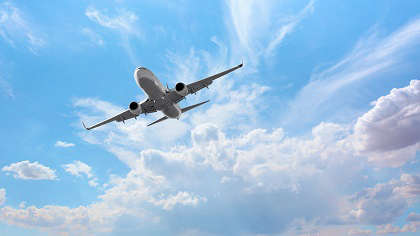
![]()
The Boeing 787 Dreamliner aircraft is carrying Virgin founder Richard Branson, UK transport secretary Mark Harper and Virgin Atlantic chief executive Shai Weiss among its passengers. No ordinary, fare-paying passengers are aboard.
SAF has already been used in jet engines, blended with traditional kerosene.
Aviation currently accounts for an estimated 2-3% of global carbon emissions and while SAF is three to five times more expensive than standard jet fuel, it is hoped the new alternative will help to dramatically reduce those emissions.
The SAF powering today’s transatlantic flight is mostly made from used cooking oil, animal fat, and a small amount of synthetic aromatic kerosene made from waste corn.
Virgin and its partners including Rolls-Royce, Boeing and BP were permitted to fly using only SAF after successful ground tests.
Mr Branson said: “The world will always assume something can’t be done, until you do it.
“The spirit of innovation is getting out there and trying to prove that we can do things better for everyone’s benefit.
“Virgin Atlantic has been challenging the status quo and pushing the aviation industry to never settle and do better since 1984.”
Mr Harper said: “Today’s 100 per cent SAF-powered flight shows how we can decarbonise transport both now and in the future, cutting lifecycle emissions by 70 per cent and inspiring the next generation of solutions.
“This government has backed today’s flight to take off, and we will continue to support the UK’s emerging SAF industry as it creates jobs, grows the economy and gets us to jet zero.”
The flight has been called “a green washing distraction” by Stay Grounded, an environmental advocacy group.
Magdalena Heuwieser, a representative of the group, said that fuel substitutes are “nowhere close to being scalable in the necessary timeframe to avoid climate collapse.”
“What is urgently needed is to reduce the burning of fossil jet fuels, which means reducing flights wherever possible," she added.
The Aviation Environment Federation (AEF) has also criticised the claims made by those behind today’s SAF powered flight.
“The idea that this flight somehow gets us closer to guilt-free flying is a joke,” AEF policy director Cait Hewitt said.
“SAF represent around 0.1% of aviation fuel globally and will be very hard to scale up sustainably.”